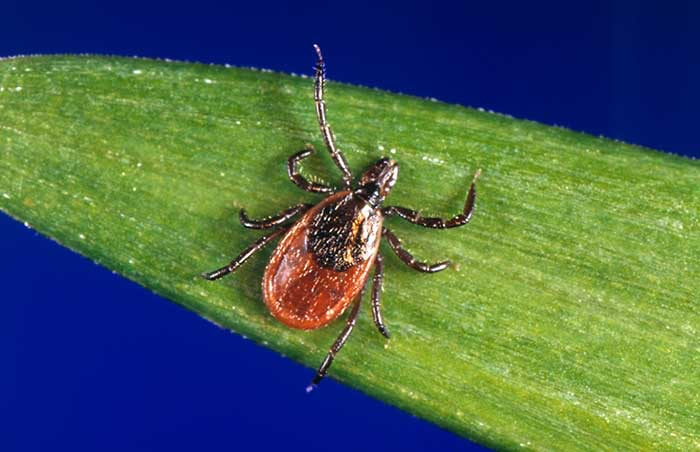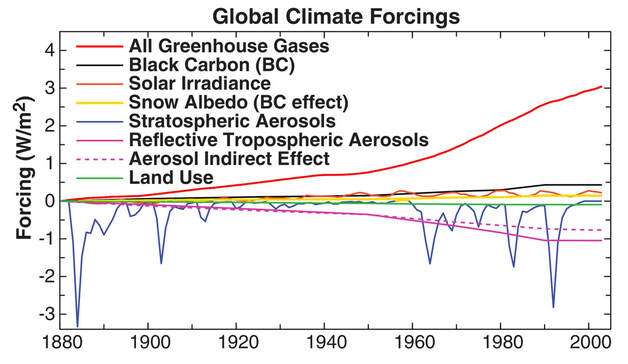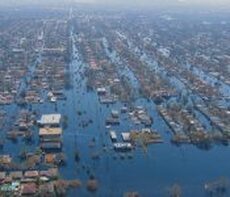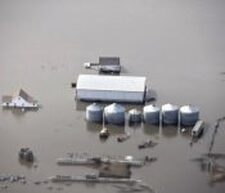Adaptation to climate change
Climate Change is already happening. It's not something that will happen in the future. We need to prepare for the extremes in weather that will make us uncomfortable or worse. Please click on the following link for more information about how to prepare:
https://www.intactcentreclimateadaptation.ca/climate-ready-infographics/
https://www.intactcentreclimateadaptation.ca/climate-ready-infographics/
Direct implications for Canadian lakes:
Bad news for fishing: Climate change is sucking the oxygen out of lakes, study suggests:
https://www.cbc.ca/news/science/oxygen-climate-lakes-1.6059334
Bad news for fishing: Climate change is sucking the oxygen out of lakes, study suggests:
https://www.cbc.ca/news/science/oxygen-climate-lakes-1.6059334
Muskoka District Council Approves A New Climate Strategy For Muskoka
https://www.climateactionmuskoka.org/district-passes-a-new-leaf-muskokas-climate-strategy/
Links to
1. the presentation to the council
https://muskoka.civicweb.net/filepro/documents/36397?preview=36398
2. the report and strategy
https://muskoka.civicweb.net/filepro/documents?expanded=32840,34977,36275&preview=36295
https://www.climateactionmuskoka.org/district-passes-a-new-leaf-muskokas-climate-strategy/
Links to
1. the presentation to the council
https://muskoka.civicweb.net/filepro/documents/36397?preview=36398
2. the report and strategy
https://muskoka.civicweb.net/filepro/documents?expanded=32840,34977,36275&preview=36295

Lyme disease, borne by the Black-legged Tick is one of the adverse effects of climate change in Haliburton County.
Please click on this link for more information:
https://www.ontario.ca/page/lyme-disease
Please click on this link for more information:
https://www.ontario.ca/page/lyme-disease
Update on Climate Change
Climate Change in Canada https://climateatlas.ca/
The Climate Atlas of Canada combines climate science, mapping and storytelling to bring the global issue of climate change closer to home for Canadians. It is designed to inspire local, regional, and national action that will let us move from risk to resilience.
The Climate Atlas of Canada combines climate science, mapping and storytelling to bring the global issue of climate change closer to home for Canadians. It is designed to inspire local, regional, and national action that will let us move from risk to resilience.
Global warming isn’t natural,
and here’s how we know
https://thelogicofscience.com/2016/06/06/global-warming-isnt-natural-and-heres-how-we-know/
and here’s how we know
https://thelogicofscience.com/2016/06/06/global-warming-isnt-natural-and-heres-how-we-know/
Have you got climate zombies?
We debunk the myths that refuse to die
https://www.abc.net.au/news/science/2019-07-27/climate-change-denial-zombies-killed/11291724
We debunk the myths that refuse to die
https://www.abc.net.au/news/science/2019-07-27/climate-change-denial-zombies-killed/11291724
Facing Extinction by Catherine Ingram
...."Take capitalism for instance. It is unsustainable at its core as it relies on continued economic expansion and growth in a system of finite resources. In the process, it also speeds up the complete elimination of the very resources on which it relies. But the problem is that the human creature will postpone challenging that system as long as the goods keep flowing, no matter the future costs. Capitalism is a perfect representation of the human need and greed for more, future be damned. Very few cultures in modern civilization have managed to resist it. There is now a lot of false hope around “Green Capitalism” and the Green New Deal in the USA. Given that capitalism, of any color, inevitably relies on extraction of resources in the production or transport of goods, feeling encouraged about Green Capitalism is another form of deluded bargaining in the Kubler-Ross stages of grief. As Derrick Jensen elegantly defines it: “Capitalism is a system by which the living is converted into the dead.” ... more
...."Take capitalism for instance. It is unsustainable at its core as it relies on continued economic expansion and growth in a system of finite resources. In the process, it also speeds up the complete elimination of the very resources on which it relies. But the problem is that the human creature will postpone challenging that system as long as the goods keep flowing, no matter the future costs. Capitalism is a perfect representation of the human need and greed for more, future be damned. Very few cultures in modern civilization have managed to resist it. There is now a lot of false hope around “Green Capitalism” and the Green New Deal in the USA. Given that capitalism, of any color, inevitably relies on extraction of resources in the production or transport of goods, feeling encouraged about Green Capitalism is another form of deluded bargaining in the Kubler-Ross stages of grief. As Derrick Jensen elegantly defines it: “Capitalism is a system by which the living is converted into the dead.” ... more
Important Climate Change Sources
Radio EcoshockLatest science, authors, issues – from climate change, oceans, forests, pollution, solar storms, the economy, and peace. Ready for re-broadcast, computer, iPod, or mp3 player. As heard on over 98 radio stations.
About Alex Smith Host of syndicated weekly Radio Ecoshock Show – the cutting edge with top scientists, authors and activists. Twelth year on the air as of 2018. Previously a researcher for global environment group, print journalist, homesteader, world-traveler, and private investigator. Contact Alex by using the website contact form. |
Climate and EconomyWeekday updates on both climate change and the global economy. Stay current with what’s happening around the world with a quick scan of top news.
Why am I focusing on climate change news, since humanity’s impact on the planet is both mind-boggling and multi-faceted? Read on! Read here about why I am focusing on the trajectory of our global economy. We can’t have an infinite growth paradigm on a planet of finite resources. How did I fall down the rabbit holes marked ‘climate change’, ‘environmental degradation’ and ‘economic collapse’? Read all about it here. |
DesmogblogDeSmog launched in January 2006 and quickly became the world’s number one source for accurate, fact based information regarding global warming misinformation campaigns.
TIME Magazine named DeSmog in its “25 Best Blogs of 2011” list. Our articles and stories are routinely highlighted in the world’s most popular news outlets and blogs: New York Times, Huffington Post, Daily Kos, ThinkProgress, and Forbes, to name a few. DeSmog has won the Canadian Public Relation Society’s Leadership in Communication award, and was voted Canada’s “Best Group Blog” by their peers. |
Why is Everything melting so Fast?
https://www.youtube.com/watch?v=yHDNGPV3Meg
The talk title is "Why Is Everything Melting So Fast??" and was given at the Weather and Climate Summit, Breckenridge, Colorado, USA on Tues-Thurs 16-18 Jan 2018. Dr. Jim White is the Director, Institute for Arctic and Alpine Research, University of Colorado. Talk slides
The Weather and Climate Summit has videos posted from 2012-2019 here.
The Weather and Climate Summit has videos posted from 2012-2019 here.
Vertical Divider
An Amazing Infographic
|
Five Myths About Climate Change
What’s happening isn’t natural — and almost all scientists agree https://www.washingtonpost.com/outlook/five-myths/five-myths-about-climate-change/2018/11/30/ Dec 3 By Katharine Hayhoe The Fourth National Climate Assessment — the work of 13 federal agencies and more than 350 scientists, including me — is clear: The Earth is warming faster than at any time in human history, and we’re the ones causing it. Climate change is already affecting people, and the more carbon we produce, the more dangerous the effects over the coming century. Nevertheless, many people continue to believe and propagate some misleading myths. Here are the five I hear most frequently. Myth №1: Climate Scientists Are Just in It for the Money. When the second volume of the National Climate Assessment was released on Nov. 23, Rick Santorum, a Republican former senator from Pennsylvania, took to CNN to proclaim that climate scientists “are driven by the money that they receive.” Former House majority leader Tom DeLay (R-Tex.) appeared on the network the next day declaring the report to be “made by scientists that get paid to further the politics of global warming.” I was one of the report’s authors. How much did I earn for the hundreds of hours I spent on it? Nothing. Nearly every day, climate scientists are accused of venality. Our other purported sins include fabricating data, selling out to “big green” — which supposedly tethers our grant money to doom-and-gloom findings — and fanning the flames of hysteria to further our nefarious agenda. The reality is that nearly every climate scientist could make at least the same amount of money — and often much more — in a different field, including the oil industry. And the money we do receive in grants doesn’t go into our pockets. A $1.1 million grant from the National Science Foundation provided me with a mere $37,000 a year, all of which went to paying for the proposed work, including a graduate researcher, a computer and publication fees. (In summer, I do some climate-focused consulting with cities and water districts to cover my salary when I’m not teaching.) Santorum, meanwhile, receives a substantial income from serving as a consultant to Consol Energy, a coal company; and according to OpenSecrets.org, DeLay has received nearly $740,000 from the oil and gas industry. Myth №2:The Climate Has Changed Before. It’s Just a Natural Cycle. Last fall, when the first volume of the National Climate Assessment was released, White House spokesman Raj Shah responded that “the climate has changed and is always changing.” President Trump himself has embraced this position, claiming that the climate “will change back again.” This line is a popular one with people who dismiss climate change by maintaining that we’ve had ice ages before, as well as warm periods, and so the warming we’re seeing now is just what the Earth has always done. But we can look at the natural factors that affect the climate. First, over the past few decades, energy from the sun has been going down, not up, so if changes in the sun’s energy drove our temperature, we should be getting cooler, not warmer. Others argue that we’re getting warmer because we’re recovering from the last ice age. But ice ages — and the warm periods in between — are caused by the Earth’s orbital cycles, and according to those cycles, the next event on our geologic calendar is another ice age, not more warming. We can also rule out volcanoes, which do produce heat-trapping gases, but less than 1 percent of the CO2 that humans produce. And big eruptions, when they happen, cool the Earth instead of warming it. In other words, the climate change we’re experiencing now definitely isn’t natural. Myth №3: Climate Scientists Are Split on Whether It’s Real. We often hear that climate scientists are split 50–50 when it comes to whether global warming is occurring. “Each side has their scientists,” Senate Majority Leader Mitch McConnell (R-Ky.) told Politico in 2014. Trump echoed that rhetoric on “60 Minutes” this October, telling Lesley Stahl, “We have scientists that disagree” with human-caused global warming. In reality, more than 97 percent of climate scientists agree that global warming is happening and that humans are causing it. At least 18 scientific societies in the United States, from the American Geophysical Union to the American Medical Association, have issued official statements on climate change. And it’s been more than 50 years since U.S. scientists first raised the alarm about the dangers of climate change with the president — at the time, Lyndon B. Johnson. The public confusion has been manufactured by industry interests and ideologues to muddy the waters. Myth №4: Climate Change Won’t Affect Me. We often think the most widespread myth is that the science isn’t real. But according to public opinion polls by the Yale Program on Climate Change Communication , the most prevalent misconception — one that the majority of us have bought into — is that climate change just doesn’t matter to us. While 70 percent of American adults agree that climate change is happening, only 40 percent of those surveyed believe it will harm them personally. Sure, it’ll hurt polar bears, and maybe people who live on low-lying islands in the South Pacific. But the world has warmed by just 1 degree Celsius, or 1.8 degrees Fahrenheit, since 1900. What’s the big deal? Climate change is a threat multiplier that touches everything, from our health to our economy to our coasts to our infrastructure. It makes heat waves stronger, heavy precipitation events more frequent and hurricanes more intense, and it nearly doubles the area burned by wildfires . It supercharges natural disasters like Hurricane Harvey and the Camp Fire, as those suffering the effects of these events know firsthand. Climate change is no longer a distant issue in space or time: It’s affecting us, today, in the places where we live. Myth №5: It’s Cold Outside — Global Warming Can’t be Real. Whenever a cold snap brings out our winter parkas, there’s a politician or pundit saying, Global warming? Global cooling, more like! Trump has done so repeatedly, tweeting just before Thanksgiving, “Brutal and Extended Cold Blast could shatter ALL RECORDS — Whatever happened to Global Warming?” In 2015, Sen. James M. Inhofe (R-Okla.) brought a snowball to the Senate floor in an attempt to reject the reality of climate change. But cold weather doesn’t rebut the data that shows the planet is warming over climate time scales. Think of it this way: Weather is like your mood, and climate is like your personality. Weather is what occurs in a certain place at a certain time. Climate is the long-term average of weather over decades. The fact it was cold and snowy one day last week? That’s weather. Global warming or not, cold days still occur, particularly in winter. But since 2000, we’re seeing far more new hot-temperature records than cold ones. In fact, in 2017, we saw more than 10,000 cold-temperature records broken at weather stations across the United States. And more than 36,000 high-temperature records were broken the same year. Katharine Hayhoe is a professor and director of the Climate Science Center at Texas Tech University. She is a lead author on Volumes 1 and 2 of the Fourth National Climate Assessment. |





